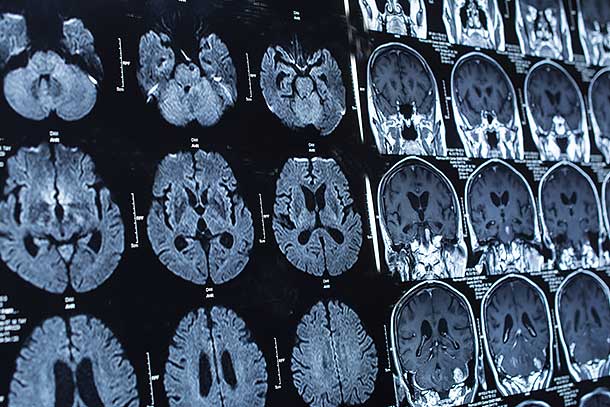Medical Imaging for the Texas Panhandle
 Medical imaging is the area of medicine that uses X-rays, magnetic waves and ultrasound to obtain detailed images of the inside of the body. Doctors can then use those images to detect and diagnose illnesses and injuries, as well as to help develop treatment plans.
Medical imaging is the area of medicine that uses X-rays, magnetic waves and ultrasound to obtain detailed images of the inside of the body. Doctors can then use those images to detect and diagnose illnesses and injuries, as well as to help develop treatment plans.
The Radiology (medical imaging) Department at Northwest Texas Healthcare System offers medical radiology imaging services to residents of the Texas Panhandle. Below are descriptions of some of the imaging tests available at the main Radiology department of Northwest Texas Healthcare System.
Visit the Women's Imaging Center to learn about mammograms and bone density screenings >
A Lung Cancer Screening Could Save Your Life
Northwest Texas Healthcare System Now Offers Lung Cancer Screenings
A lung cancer screening provides a unique opportunity to detect lung cancer, the leading cause of cancer-related deaths*, in its early stages—when it’s most treatable. Are you at risk for lung cancer? The National Cancer Institute found that low-dose CT scans of the chest in patients at high risk for developing lung cancer reduced cancer deaths by 20 percent.** Those who may be at high risk for lung cancer and may benefit from screening include:- People 50 to 77 years of age
- People with a family history of lung cancer
- Smokers of a pack of cigarettes a day for 20 years or more
- Current smokers or those who quit smoking less than 15 years ago
60 seconds is all it takes. Our lung cancer screening CT scan is safe and affordable. Schedule your lung cancer screening appointment with us today. CALL 806-351-5670
*Source: Centers for Disease Control and Prevention **Recommendation: At-risk patients should have a baseline CT scan and repeat yearly for two years.
X-ray (Radiography)
X-ray (also called radiography) uses a very small dose of radiation to produce pictures of the inside of the body. X-rays are the most frequently used form of medical imaging and they are also the oldest. They are often used to help see bone fracture, injuries or infections; they are also used to locate foreign objects in soft tissue. In some cases, X-ray exams are used in conjunction with an iodine-based contrast material, which is injected, to help doctors see certain organs, blood vessels or tissue.
Magnetic Resonance Imaging (MRI)
Magnetic resonance imaging uses radio waves and a strong magnetic field to create clear, detailed images of internal organs and tissues. Since X-rays are not used, no radiation exposure is involved. Instead, radio waves are directed at the body. This exam takes 30-50 minutes on average and consists of several imaging series. Many studies will require a small intravenous injection of a contrast agent. However, this agent does not contain iodine, an element used in other contrast agents for X-rays or CT scans. MRI is often used to evaluate or diagnose orthopedic (spine, extremity) or neurologic (brain, spinal cord) abnormalities.
Magnetic Resonance Angiography (MRA)
Magnetic Resonance Angiography (MRA) is the use of MRI imaging to study a patient's blood vessels after the injection of a contrast material. Unlike conventional angiography, which is an invasive procedure, MRA is noninvasive other than an injection with a needle to administer the contrast material. This technique can be used to obtain images of arteries in the brain, heart, kidneys, gastrointestinal tract, aorta, neck, chest, limbs and pulmonary system.
Computed Tomography (CT)
Computed tomography (CT) is an imaging test that creates detailed images of internal organs, bones and tissue. The images generated during a CT scan can be reformatted into three-dimensional images viewed on a computer monitor, printed out or transferred to other media. CT is now being used to screen for lung cancer. See details below.
Accreditations
The Radiology Department at Northwest Texas Healthcare System is accredited by the American College of Radiology (ACR), the largest organization of radiologists in the nation. Northwest Texas Healthcare also has American College of Radiology Accreditation in CT, American College of Radiology Accreditation in Nuclear Medicine, American College of Radiology Accreditation in Mammography, and is a Breast Center of Excellence Member of the National Circle of Excellence in Breast Imaging.
Outpatient Services
Freestanding emergency departments, including Northwest Emergency at Town Square and Northwest Emergency on Georgia, offer outpatient radiology services.

